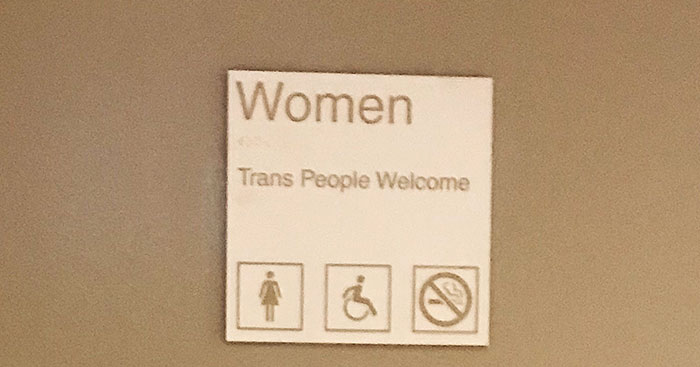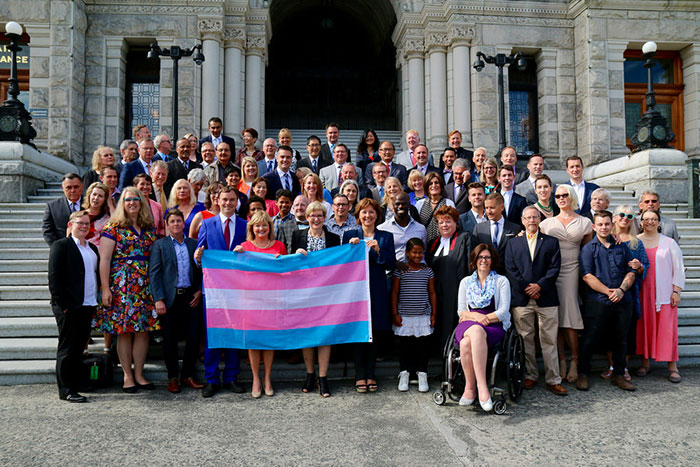Whatcott hearing at BC Human Rights Tribunal
Day 5: Whatcott’s closing arguments; BC Attorney-General’s case vs. Whatcott
Whatcott’s attorney: “At stake is the future of political free speech." Clear pro-Oger bias evident in A-G’s website. Photos.
The Fix Is In - Whatcott ruling expected to be green light for future prosecutions. The lunacy doesn't end.
by Amy Contrada
December 17, 2018
Note: The hearing was originally scheduled for only four days (Dec. 11-14), so we had made our travel plans accordingly. The schedule for Day 5 (Dec. 17) was for the closing arguments from representatives of both sides. Our report for Day 5 includes information from people who attended and other pertinent material from them and their organizations.
Monday, Dec. 17, was the final day of the Whatcott hearing. It is not known when the B.C. Human Rights Tribunal will issue its findings.
Dr. Charles Lugosi, Bill Whatcott's attorney, gave his closing oral argument on Monday, December 17, 2018. After he spoke, an attorney from the British Columbia Attorney General’s office presented the A-G’s case against Whatcott. (MassResistance’s reporter was not in attendance that day, so we do not yet have anything on the A-G’s presentation.)
On December 20, Dr. Lugosi submitted his written response to the B.C. Attorney General, brilliantly summarizing the legal arguments in Whatcott’s defense. See that document here. It is well worth reading, and easily understood.
Dr. Lugosi's facts and logic may not break through the groupthink that has obviously taken hold of the A-G and Tribunal attorneys. But to those who can still think on their own, his conclusions seem beyond dispute.
Here are just some of Dr. Lugosi’s points:
- "At stake is the future of political free speech."
- The B.C. Provincial government has no "jurisdiction to regulate the content of political free speech uttered or stated in a publication in the course of an election campaign."
- The attempt to label Whatcott's flyer as "hate speech" amounts to religious discrimination, an "attack on the Bible itself as hate literature."
- The sanctions proposed against Whatcott amount to "behaviour modification ... with the goal to humble and humiliate Whatcott by indoctrinating him with the Tribunal’s view" of transgender rights "through a combination of financial penalties, social stigma, and forced re-education of his mind."
 Sign on the womens' restroom door at the BC Human Rights Tribunal offices.
Sign on the womens' restroom door at the BC Human Rights Tribunal offices.Also speaking on behalf of Whatcott’s free speech was an attorney from the Justice Centre for Constitutional Freedoms, Marty Moore. Here is a link to their closing argument, which Bill says he agrees with in its entirety. Since it is quite long, we include here an excerpt from their pre-hearing submission:
… the Justice Centre’s submissions [supporting Whatcott] will focus on the critical importance of freedom of expression to the democratic discourse, especially during elections. In this context, censoring expression of honest beliefs and views made during an election campaign is highly inappropriate. The purpose of election campaigns is to sift false allegations from true allegations, poor character from good character, and bad policies from good policies. To achieve this, citizens must not be prevented from expressing their beliefs and to criticize candidates openly and publicly.
“Political expression is the lifeblood of democracy, and cannot be limited, especially not during elections,” explains lawyer and Justice Centre president John Carpay. “Whether particular claims and assertions are correct or not should be decided by citizens themselves, not by government deciding on everyone’s behalf,” continued Carpay.
The Justice Centre published a very useful paper on the issue of transgenderism in Canadian law. It was submitted in opposition to federal Bill C-16 which unfortunately passed in 2017, making “gender identity or expression” a protected characteristic in Canada’s nationwide anti-discrimination law (as did British Columbia in 2016, with lobbying by Ronan Oger). Excerpts:
There can be little doubt that the Canadian Human Rights Commission, based on existing human rights jurisprudence, will compel service-providers and employers to refer to transgender people by their self-chosen pronoun, with legal consequences for those who refuse to use this language. As the Ontario Human Rights Commission explains it:
“Refusing to refer to a trans person by their chosen name and a personal pronoun that matches their gender identity, or purposely misgendering, will likely be discrimination when it takes place in a social area covered by the Code, including employment, housing and services like education.”
The BC Human Rights Tribunal issues a similar ruling in Dawson v. Vancouver Police Board in 2015. This is jurisprudence on which the which the Canadian Human Rights Commission will rely when issuing it rulings….
Therefore, Bill C-16 results in government-imposed coercion on Canadians to use language which expresses approval of, or agreement with, the “feelings trump reality” ideology which underlies this legislation. Bill C-16, if passed, will result in the government forcing people to say and not say certain things, under the threat of penalty….
The illusion of a definition of “hate speech” – In 2017, most Canadians would not consider it “hate speech for someone to express the opinion that males should not use female-only facilities such as bathrooms and locker rooms. But “hate” is a subjective, moving target, which varies from decade to decade, and even from year to year…. The Supreme Court attempted to define “hate” by referring to the word “extreme,” but both are entirely subjective [as are other words in the ruling, “detestation” and “vilification”].
As we have noted elsewhere, the specific inclusion of education as an area covered by transgender non-discrimination has huge significance.
Speaking against Whatcott on Day 5 was a representative from the B.C. Attorney General’s office. Dr. Lugosi’s written response (dated Dec. 20, 2018) to the A-G’s arguments are here. The B.C. A-G’s website quotes Ronan Oger and Tribunal Judge Juricevic in its announcement that “gender identity or expression” would be added to the law, proving the bias of the Panel in the Whatcott hearing:
Morgane Oger, chair, Trans Alliance Society -
“The Trans Alliance Society has been advocating for equal protection of minorities in provincial and federal human rights law since our founding in 2001. We welcome and applaud the Government of British Columbia's extension of the B.C. Human Rights Code by adding “gender identity or expression” to the enumerated list of prohibitions against discrimination.
“This important change to the code will help educate future generations to prevent anti-trans sentiment, will inform and guide organizations shaping inclusion policies, and will help prevent accidental human rights violations caused by the lack of awareness that this change addresses.”
Diana Juricevic, tribunal chair, B.C. Human Rights Tribunal -
“The tribunal recognizes that “gender identity or expression” captures some of the most marginalized individuals and groups in British Columbia. The tribunal welcomes this amendment to the Human Rights Code. It clearly communicates that discrimination on the basis of “gender identity or expression” is prohibited and that the tribunal’s remedial process is available.”
 If there was any doubt about the extreme bias of the British Columbia Attorney General's office, this photo from their official website of the AG's staff holding the "transgender" flag should put that to rest.
If there was any doubt about the extreme bias of the British Columbia Attorney General's office, this photo from their official website of the AG's staff holding the "transgender" flag should put that to rest.Finally, we have this from Bill Whatcott:
Dr. Lugosi (our lawyer) anticipates the ruling from the BCHRT will need to be appealed, also he will be dealing with my $104 million lawsuit and Orwellian hate crime charge in the New Year. We ask all donations go to him for the time being as the legal bill is going way up and his firm understandably does not want six digits worth of liability fighting for our election freedom. I would urge those Christians who value the freedom to criticize transgender activists who run for political office without fear of being dragged before a Tribunal the way I was to please consider giving him something this Christmas.
Please help us continue to do our uncompromising work!
Our successes depend on people like you.
Your support will make the difference!
